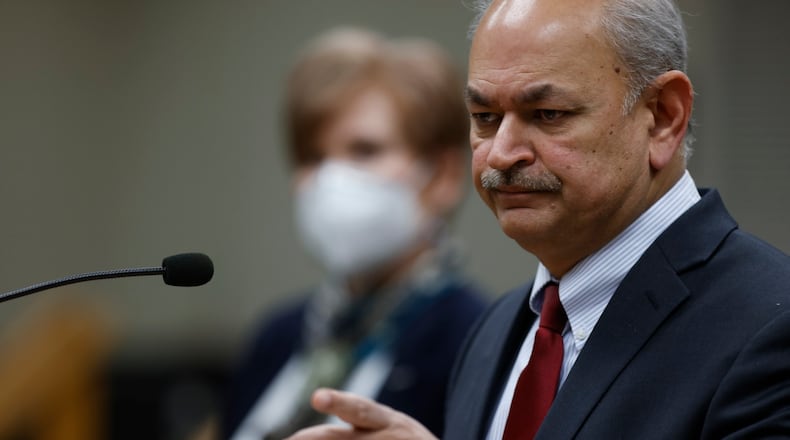“I am concerned about our officers all the time because of the propensity of gun violence in our city, so this just adds a little more to it,” the chief said.
Afzal also said that during encounters with police, he encourages anyone carrying a weapon to voluntarily disclose that information to the officer for everybody’s safety.
The law that took effect Monday has three major provisions and is sometimes referred to as constitutional carry.
· A person at least 21 years old who is otherwise legally allowed to have a gun can carry it concealed without a permit. That means someone without a criminal history does not have to apply for a permit at their local sheriff’s office.
· Holders of a current concealed-carry permit no longer have to carry that license with them.
· If stopped by police, a person with a concealed weapon no longer has to tell officers about it unless they’re specifically asked.
Concealed carry licenses are still available for those who want them, but permitless carry waives the eight hours of training on gun handling and safety that accompany a license.
Montgomery County Sheriff Rob Streck previously said his office will enforce the law as passed. The sheriff’s office said Monday that its deputies also will regularly ask residents they stop whether they have a firearm.
The sheriff’s office said the local CCW (carrying a concealed weapon) licensing department will remain open. Some experts expect gun owners will want to get a permit so they can carry concealed in different states that still require permits.
Dayton Police said officers did have the discretion to ask about potential weapons in the past. Kettering Police said it’s been a standing practice for their officers to ask citizens whether they have a firearm during their encounters. Centerville Police said Monday that they are not making changes in response to the new law.
Afzal said residents who want to carry firearms still have a responsibility to use their weapons safely and legally. He said there have been too many accidental shootings here that could have been prevented.
He noted that using a firearm can have life-changing ramifications.
“Not to get training, doesn’t make much sense,” Afzal said. “So I would say please get training.”
The police chief said Dayton officers regularly find people who are carrying firearms who are not legally allowed to do so.
Under Ohio law, people can’t have firearms if they are fugitives, if they are under indictment for or have been convicted of violent felonies or drug felonies, if they are drug-dependent or chronic alcoholics, or have had certain rulings about their mental competence.
Afzal has concerns that this law will limit his officers’ ability to find and arrest people who shouldn’t have guns. The Dayton Police Department reported it seized more than 1,000 handguns overall in 2021.
About the Author

